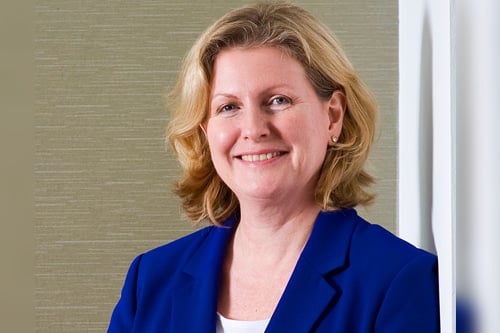

For an organisation to become an accredited member of the Commonwealth, it must meet five criteria including representing the true diversity of all 54 Commonwealth countries and having demonstrated that it is accountable and transparent. Speaking with Insurance Business, the CEO of the Chartered Insurance Institute (CII), Sian Fisher (pictured), has revealed that the CII is now an accredited member of the Commonwealth, joining the category of Professional and Civil Society Organisations.
Read more: CII leader shares her journey
The decision to undertake this journey consisted of a dual approach, Fisher noted, combining a practical aspect with a philosophical element. Looking at the history of the CII, which was founded in 1912, there existed, at that time, encouragement for British institutions to develop their influence around the world and to help evolve education and various other sectors in those countries which make up the Commonwealth. Aside from the 57 UK local institutes written into the CII’s bylaws, it also has 38 affiliated institutes, 36 of which are based in Commonwealth countries.
Fisher’s predecessors in her role at the CII put a lot of effort into creating partnerships and relationships with these international institutes, she said, and, given the global nature of insurance, she felt it would interesting to look back at history to help create something so fundamental to the future of the organisation.
“Our patron is the Queen who is also head of the Commonwealth, and she has always been very passionate about how the Commonwealth countries can help each other and have great values and aims. This is so that the smallest and the biggest countries are represented equally,” she said. “And on the philosophical side [this membership] fits in very well with the Royal Charter that we have, which stipulates a commitment on our part to build a trusted profession. And that doesn’t stay just within the confines of the UK, it’s an international commitment.”
The Commonwealth charter is formed of 16 values and principles which the CII has committed to through its membership and Fisher outlined how, when these are examined alongside the CII’s code of ethics, the core of them is closely mirrored. From the value placed on education and gender equality to the facilitation of access to the profession for people from all backgrounds, there is a thread which links the ethos of both.
Read more: Changing the culture of insurance
“And what we also noticed was that, if you look through the accredited organisations that were associated directly with the Commonwealth, there was no insurance or personal finance representation,” she said. “There is finance, such as banking and other elements of financial services, but nothing from those sides. And when you think of how critical financial services and the risk management aspects of insurance are for everyone, that just seems a bit strange in today’s world.”
The CII was already looking into this issue when Fisher was approached by a long-standing colleague in the market, Francis de Zulueta, who set up the Commonwealth Insurance Forum which looks to the countries that the Commonwealth covers, largely in the wake of Brexit. The UK has very strong relationships with many of these countries and he was examining the remit of the London market and Lloyd’s of London and highlighting that, as the UK will no longer be a part of the EU, it was time to move forward and form new partnerships.
The Commonwealth essentially covers about a third of the world’s population, she said, and often these are countries exposed to natural catastrophes, and quite a few do not have such a developed insurance, reinsurance and personal finance sector as that found in the UK. The CII started discussions with de Zulueta regarding how the insurance sector could be more involved with the Commonwealth and agreed to work in parallel where they would seek to receive formal accreditation as a not for profit body, and would themselves support the setup of the Commonwealth Insurance Forum.
“The Commonwealth has a heads of government meeting every two years, which rotates around the nations of the Commonwealth, and this year it was supposed to happen in Rwanda,” she explained. “That should have been in June, but now it has been postponed so we’ll have to see what happens.”
